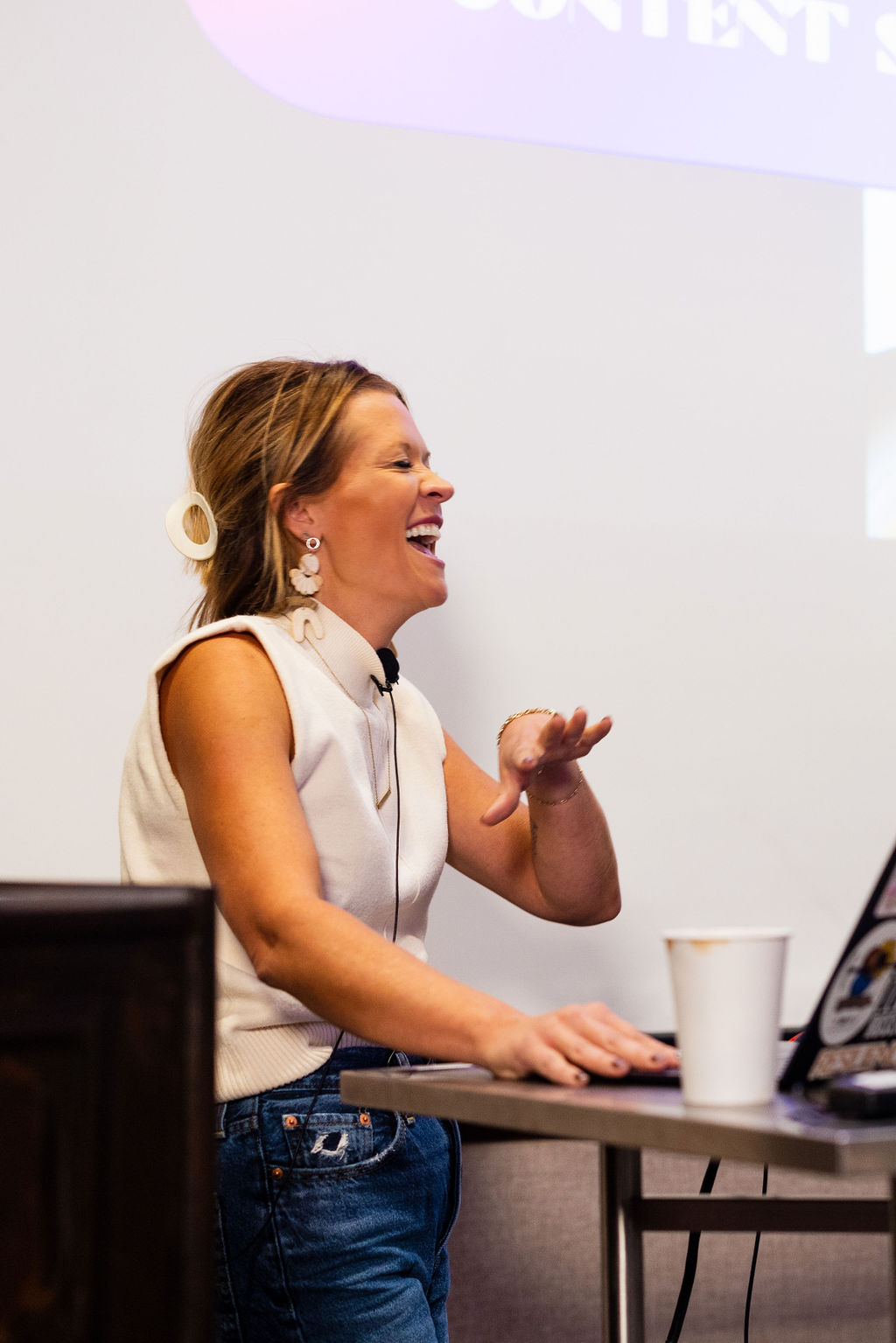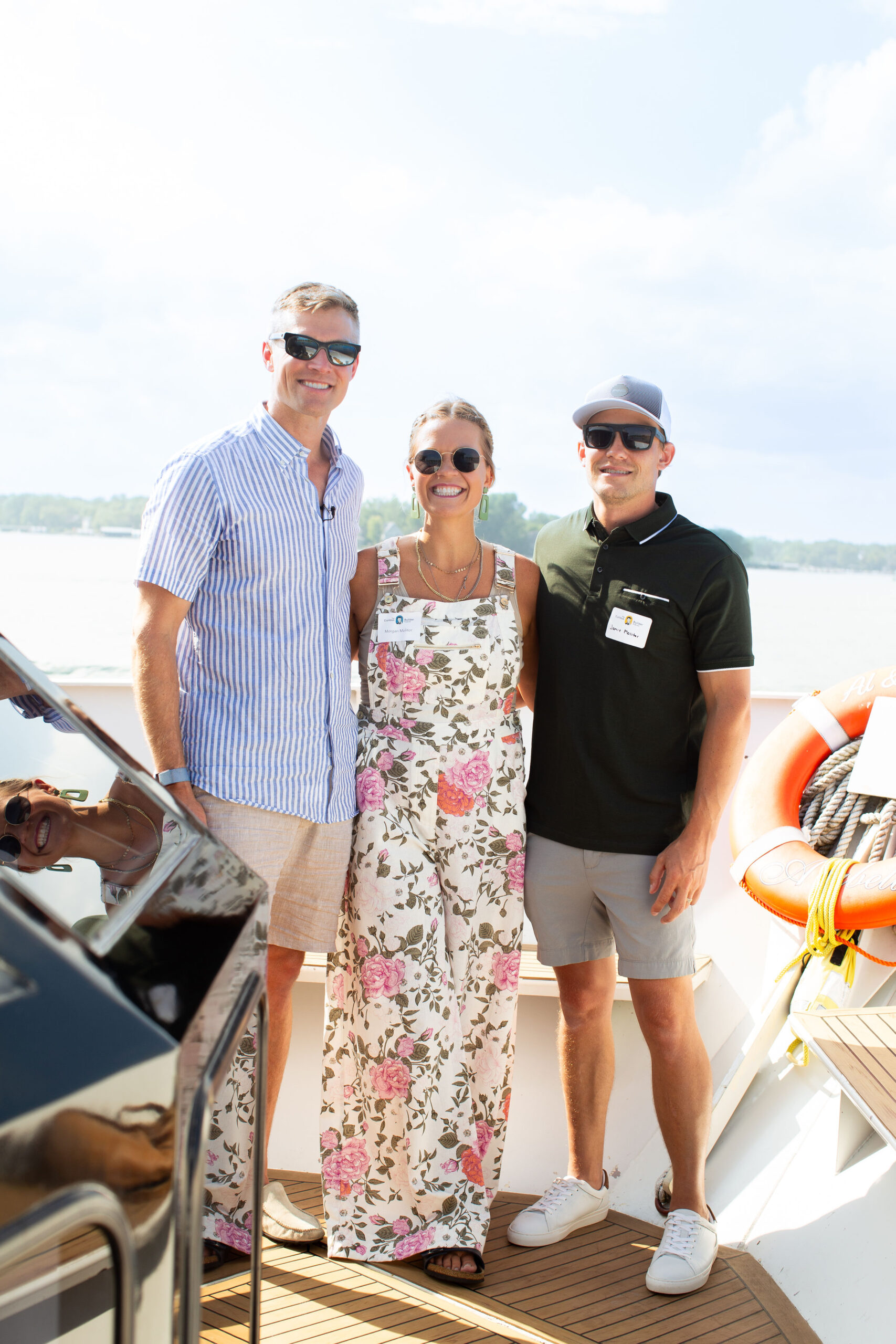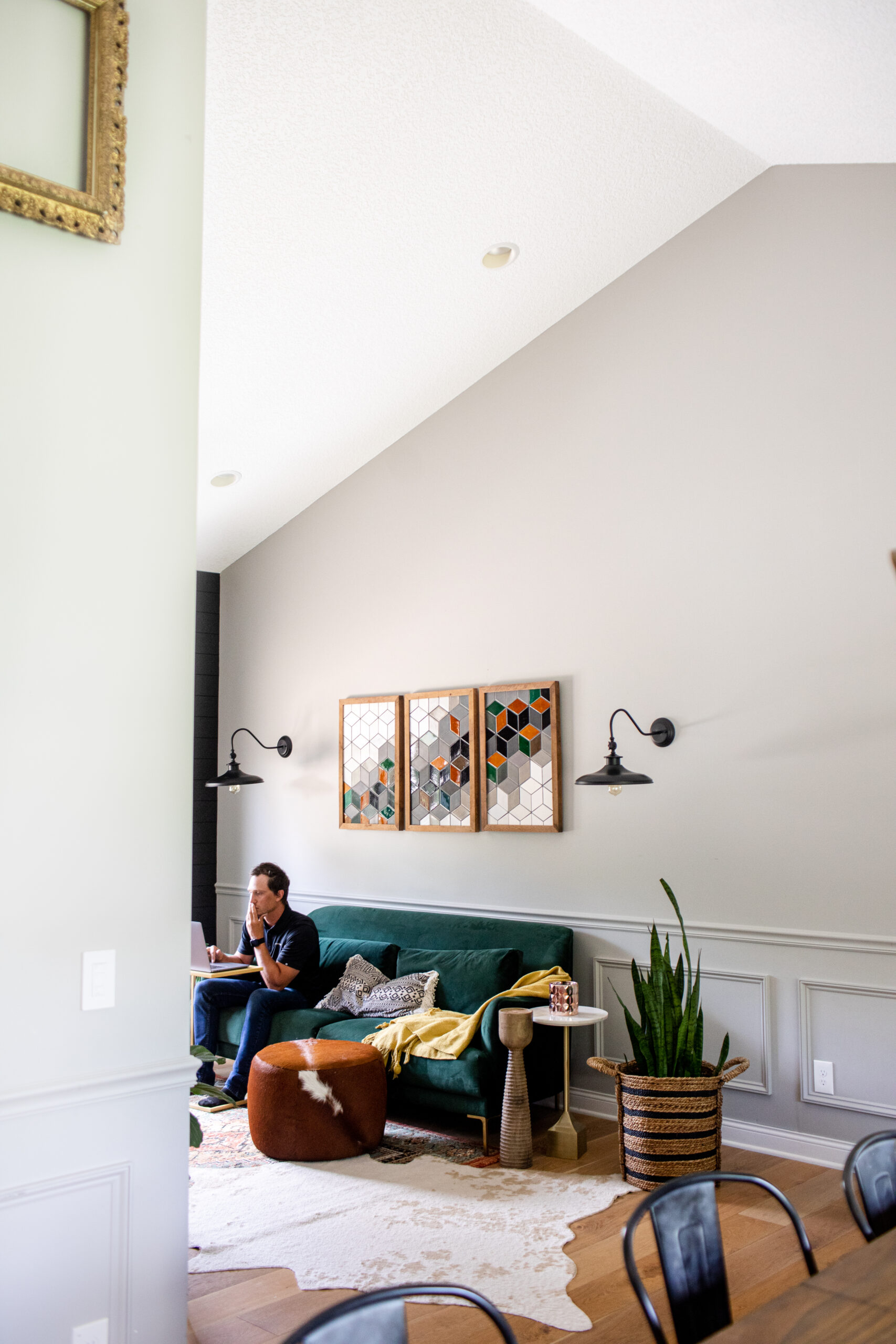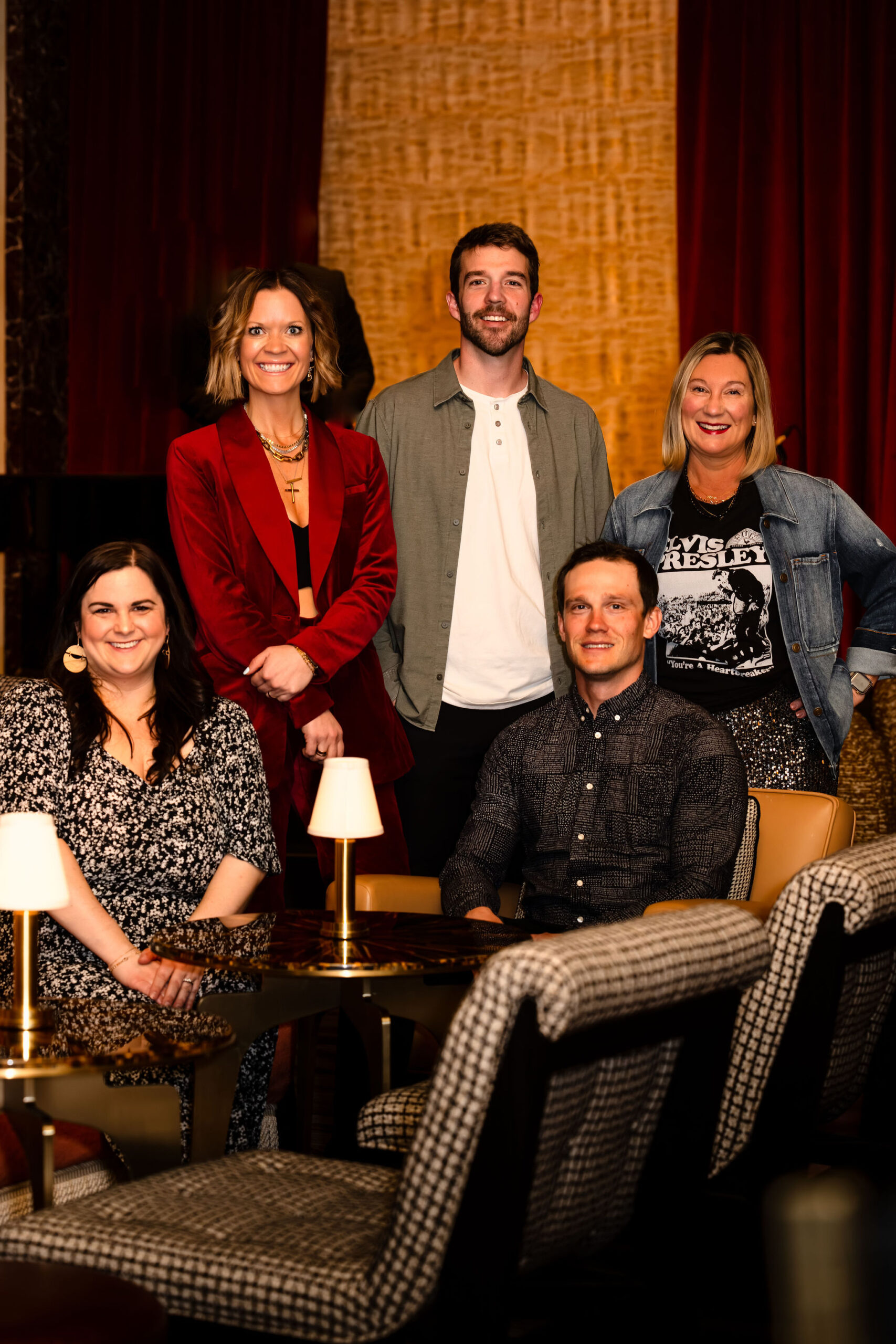
Why we Hired Good Company Consulting
Sunday blues, anyone?
Something I’ve experienced and a feeling I never want our team at c2s to feel. Ever.
And also something I know they probably have.
For the last few years, at the end of the third quarter, we have sat down together as a team and set our goals for the upcoming year.
Personally, professionally, politically … nothing was off the table.
After sitting down with our team this year and reading through them, something I saw was a need for development, training, and growth. Bringing in outside resources to educate us and think a bit deeper. Something we probably have all now realized having gone through 2020. Am I right?!
So come 2021, our goal is to do just that. Monthly, Jamie and I are bringing in an outside resource to educate us, provide new insights, new perspectives, education, and help our team develop and grow. Not just professionally, but personally too.
And we decided to kick it off with Good Company Consulting to coach us on how to create a workplace that doesn’t suck. A working environment where no one will experience the Sunday blues.
About Good Company Consulting
Through insights centered on the human experience, Good Company Consulting flips the script on the traditional workplace narrative (because they believe work can actually be awesome). Their mission is to help everyone, no matter their title or level, effect positive change now and prepare for the future of the workplace.
I’ve heard both of the co-founders, Hannah and Lisa, speak at different conferences and workshops over the past couple of years, which have left me thinking differently.
To be honest, they were so good I was slightly intimidated to reach out to see if they would come and speak to our c2s team… “they probably don’t coach small teams like ours,” was my first thought. But then I told that super annoying voice in my head to back down, and I reached out. They were ecstatic and immediately said, “of course, we do!” And after our first phone call, we got to work.
They did individual interviews with each of our team members and I’m not sure what questions they asked them but I know based on where it’s led us after just our first session they were real, raw, and vulnerable. They took that information they learned from the team and used that for the first working session we had together.
Hannah Ubl
Hannah Ubl’s, who is the Co-founder of Good Company Consulting, core mission is to create organizations that don’t suck. She’s devoted her career to flipping the traditional workplace script, throwing out the old “employees are lines on a spreadsheet” in favor of treating people at work more like…well, people.
As Co-founder of Good Company Consulting, she’s sought after for her bold take on building workplaces that prioritize the human experience while simultaneously increasing the bottom line. Hannah’s dedicated the past decade to researching people at work – not just top talent and leadership – but everyone in between. She’s discovered a strangely well-kept secret for recruiting and retaining the workforce of the future: the best recipe for organizational success is rooted in mindfulness, empathy, and kindness.
Hannah’s work is a fresh approach to the standard (and outdated) workplace narrative. Not afraid to ask the hard questions, she pushes audiences towards self-inquiry to help them become better leaders, better managers, and better colleagues.
With heart, deep conviction, and a good dose of self-deprecating humor, Hannah will sweep you along on a journey of insights that lead to deep, lasting mindset shifts about how work works. A passionate speaker and consummate professional, she’s energized by her audiences and brings her full self to each and every presentation.
Lisa X. Walden
Lisa X. Walden is a speaker, author, and co-founder of Good Company Consulting. She’s dedicated to helping people create authentic, empowering workplaces that don’t cause the dreaded Sunday scaries. Never one to accept the phrase, “because this is the way things have always been done,” Lisa has dedicated her career to asking, “but why?”
Her work is anchored by the (strangely revolutionary) concept that people and strategy don’t have to be mutually exclusive. She takes a holistic approach to work and a workplace culture that keeps human beings front and center. Her keynotes focus on how to maintain thriving work environments, best-practices for mindful communication, tactics for preventing burnout, and key trends that will impact the future of work.
Lisa’s past clients include a broad range of organizations and industries, ranging from finance to real estate, to tech and hospitality. With all audiences, she challenges long-held assumptions and aims to inspire deep mindset shifts that can lead to meaningful, lasting change, and more awesome workplaces.
The Platinum Rule
For our first working session, Hannah and Lisa kicked things off by talking about the platinum rule.
We’ve always had a mindset of the golden rule – treating others as you want to be treated. But Lisa and Hannah opened our minds up to a new concept, a subtle shift but a huge mind shift, to the platinum rule.
Similar to the golden rule but instead of how you want to be treated it’s – treat others the way THEY want to be treated.
Hello!
They kicked off our morning together asking each of us to answer…
“The most important thing to know when working with me is _________.” Fill in the blank.
My response was… “I expect everyone that I work with to be a self-starter, self-motivator. If you see something, whether an opportunity or something to fix – do it. If you want to learn about something – ask me, or watch me, and learn. I also have undiagnosed ADD, so I need to focus on one task at a time. If you have a question, please Slack me. Do your best to not interrupt me if I’m working on something.”
Jamie’s response was… “I’m not a good teacher so pay close attention to what I’m doing on the job sites to learn and ask me questions when you have them.”
Each of us filled in the blanks and read them out loud to one another and the light bulbs were going off! Something so simple that we’ve never asked from or told one another.
It was so insightful to hear and learn what each of our other team members had to say as well and to truly get to know their personality behind how they work and most importantly, the why behind it to better understand one another.
Communication
Being a small and close-knit team I’ve always thought we didn’t have any issues when it comes to communication.
We’re all pretty open and honest with one another and we all know at the c2s team there is no need for a filter. But yet again, Hannah and Lisa opened our minds to when it comes to communication, and how we can do so much better!
First, they shared with us a communication matrix and had us all fill it out. Something as simple as an excel spreadsheet with line items to fill in the blank for…
- Best time to reach you
- When you’re not available
- Preferred method of communication if urgent or if not immediate urgency
- Preferred method of overall communication
Yet again, something so simple we had never asked from one another.
For example, I don’t like phone calls. If it’s urgent some of our team thought to call me when in fact a text is better. I’ll respond right away whereas a phone call I may not pick up my phone.
If our team contacts us around the kids’ bedtime from 7-9 pm or in the morning when we’re trying to get them out the door, those are not the most ideal times to call. Little did they know those were actually very stressful times in our household.
Radically Direct Conversation
This leads us into a radical conversation, which is meant to help us have more productive and real conversations that can be uncomfortable.
Hannah and Lisa shared this quote with us, and it hit home for me…
“Being clear is kind. Being unclear is not kind.” – Brene Brown
So often when something small happens with our internal team I just sweep it under the rug or think it’s no big deal when I am in fact cringing on the inside. We all shared stories and talked about some of these small hurdles and how it was apparent that we need to have these radical conversations when we experience something with one another that annoys us. So moving forward, we’re going to start by saying…”Topher, time for a radically direct conversation… to lighten the mood and get straight to the point without making it uncomfortable.
Be direct but with heart, is what Hannah and Lisa reminded us. I loved when we chatted through that. Because often for us Minnesotans, we are either a little too passive-aggressive or we just run from all conflict and forget it and never bring it up. But that leads into…
Death by 1,000 cuts.
All these little things will eventually add up and one day, you’ll just explode and the other will be so caught off guard. Something we want to avoid to create a healthy working environment.
And bottom line before you have a radically direct conversation…
Gut check before you say it. Is it kind? Is it clear? Is it authentic? Is it necessary?
Purpose as your North Star
We talked a lot about growth both as a team and individually. And talking about the purpose as each of our north stars has kept me thinking since our session.
Have you ever thought about purpose as your north star?
We talked through…
Not only what is our team’s purpose, together? But our individual purpose?
They asked, true or false:
“My purpose is front and center in my work every day.”
WOW.
Now that is something to think about. We went through a number of different exercises and at the end of the exercise, we each had written down our individual purpose. Those sheets of paper are now hanging on our office wall, front, and center as an everyday reminder.
A reminder to ensure that our individual purpose carries over into the c2s workplace every single day.
It was really cool to not only learn about one another’s north star and purpose but to also understand the why behind it.
Another thing Lisa and Hannah encouraged us to do was to continue to ask questions from our team. Be curious about them. Not just professionally but personally. So long are the days of leaving your personal life at the door before you enter work. That all needs to show up at work too if you truly want to create a working environment that people want to show up at.
What questions do Jamie and I need to ask to make sure we can support them? Something that I’m thinking about every day now for our team. And I loved this statement they shared with us that I will forever remember…
If you extend grace all the time you’re constantly responding with curiosity.
Takeaways
These are just the highlights of our morning with Good Company Consulting after the first session, there was so much more. But I truly hope this was valuable for you all and you can take a nugget or two and implement it into your working culture. We’ve been digesting and implementing all of the goodness we gained from Hannah and Lisa and gearing up for another amazing session from them Q1 in 2021 and we can’t wait to share what we learn next.
Our top 5 takeaways!
- Shift from the golden rule and understand the concept of the platinum rule and apply it.
- Ask your team when and how is the best time and way to communicate with them.
- Have your team set individual goals, not just team goals – this leads to individual ownership and accountability.
- Start having radically direct conversations.
- Understanding purpose as your North Star as well as your teams and the why behind it.










I appreciate the time and thought you have put into the subject. ADD is a tough subject. I don’t like medicating as the world seems to be medicated enough. I agree that the internet is a powerful tool for finding things out and I tell my brother all the time when he is asking me questions about how something works, “Google it.” 🙂 I have learned to channel my ADD through keeping myself busy, writing things down so I know where to go back to once my mind wonders. I also keep a very focused team around me to keep me on task. My husband has been a very stable structure in my life as we are opposite in so many ways and I have found that has been a key to our success.
Oh good! I am so glad you found it valuable. Thank you for reading!
I loved this blog post. Thank you for sharing!
<<>>
Morgan,
1) I’m confused as to why Jamie interpreted your response to mean you are not a good teacher. I don’t think you said anything to imply you aren’t a good teacher.
2) I actually like your response better than hers. I think yours is more positive. As a co-worker, I would be afraid to ask you questions. I think Jamie’s response is much more harsh.
3) Your response also explains more concisely what is expected of a co-worker while also sharing your needs and why. Jamie’s response doesn’t state that a co-worker needs to be “a self-starter, self-motivator”.
4) Your response also shows not just a need for a co-worker to fix things if they see something wrong, but it also shows a trust in the co-worker’s abilities and decision making, which is huge.
5) You give the co-worker freedom from fear of asking to learn something and fear of showing that they don’t know how to do something. Many times bosses project such negative vibes and consequences that their co-workers are too afraid to ask anything let alone show their boss they don’t know or understand how to do something.
6) Most importantly for me, who also has ADD and takes medicines which helps somewhat, you are concisely telling, and sharing why, the co-worker needs to not interrupt you if you are working on something. (I don’t understand your statement “ If you have a question, please Slack me.”. Is Slack a name of a program where you communicate with co-workers in a written format so you don’t interrupt them and they can get to your question when it’s a better time? Or are you just saying to the co-worker to give you some slack?)
a) I work part-time for the local police department. I am in the Admin. Office. I have struggled so much with keeping focus on tasks and haven’t figured out a way to overcome or at least lessen the problem.
i) I have the people in the office, Chief, D/C, Lt, and Jan, Chief’s assistant, who interrupt me so much with giving me a new task, asking me questions, telling me information that is needed for me to do.
ii) My desk is in the open space of the Admin office where the others have their own offices. Because of this I am constantly being interrupted by all the people that come in and all the phone calls that come in.
iii) It is so extremely hard for me to focus on the task I am doing. Also, many times I have to stop the task I am on to do something that has to be done right away.
iv) I also have my own problems with focusing
1. If I need, want to find out how to do something in Excel, Word, Adobe Acrobat DC Pro, etc., I search the internet and find multiple websites with possible answers.
2. I read what they have to say and decide if that is the correct solution.
3. As I am reading on their websites, I see great links of how to’s, some not related to my problem but related to my work and something I would like to learn and some not having to do with work but my home life.
4. Some of the websites are for youtube. This is when I really lose focus and costs me a lot of wasted time.
a. I watch the video and read the comments. In the person/business’s “Show more”, many times there are important links in which I click to open.
b. On the right of the screen there are all these possibly great videos, some have to do with what I am learning, some don’t relate to the current problem but are things I want/need to learn that could/would help me at work/home, and some have nothing to do with work and are things related to other videos that are in my video collection and I am very interested in.
5. I usually click on the links I’d like to learn or watch some other time, then I take the time to bookmark it. Sometimes I have had up to 15 open websites/youtube videos that I want to bookmark.
6. Sometimes the links to “How to’s” websites/tutorials are very important for work but not the current problem. So I do a copy/paste of the whole tutorial and put it in a Word document. Then because the format usually changes &/or the pictures are too big for the document, that I have to, hmmm, I feel I have to take the time to fix the document before I save it. I have so many documents of “How to’s” that I forget I have and can’t find them quickly when I need them. I have thought about searching how to do a TOC and maybe put all the documents in one document called How To – Excel, and same for other programs. But I don’t know if that would help. That would take so much time but I thought how great it would be if I could have quick access to and search for how to do anything in the programs I use at work.
OMGosh!!!!! I can’t believe I wrote all this! I’m sorry this is so long. I wanted to share how I can relate to your needs due to ADD and I think I also hoped you might have some helpful suggestions for me based on what you have learned.
I have been looking for a long time for either a Life Coach or Therapist that really knows, understands and has experience and education of helping people with ADD.